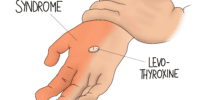Why Maintaining a Healthy Weight Contributes to Pain Management

This article examines the relationship between maintaining a healthy weight and the management of pain.
It explores the impact of excess weight on joint pain and the increased risk of chronic pain associated with obesity.
The connection between weight loss and the alleviation of pain symptoms is discussed, as well as strategies for maintaining a healthy weight to manage pain.
Additionally, the role of exercise in weight management and pain relief, nutrition tips for promoting a healthy weight, and the psychological benefits of weight maintenance in pain management are explored.
Real-life success stories are also presented.
Key Takeaways
- Excess weight increases stress on joints, leading to pain and discomfort.
- Weight loss reduces inflammation in the body, alleviating pain symptoms.
- Losing weight reduces the load on joints, decreasing the risk of joint-related pain and conditions like osteoarthritis.
- Maintaining a healthy weight improves mental health, self-esteem, and overall well-being.
The Impact of Excess Weight on Joint Pain
Excess weight has been found to have a significant impact on joint pain. Obesity is associated with increased stress on the joints, leading to pain and discomfort. The excess weight puts additional pressure on the joints, causing them to wear down faster and leading to conditions such as osteoarthritis.
Moreover, obesity has also been linked to cardiovascular health issues, which can indirectly contribute to joint pain. Obesity is associated with an increased risk of developing conditions such as high blood pressure and diabetes, which can further exacerbate joint pain.
Additionally, the relationship between weight and sleep quality is another factor to consider. Obesity is known to be associated with sleep apnea, which disrupts sleep patterns and can contribute to increased pain sensitivity.
How Obesity Increases the Risk of Chronic Pain
Obesity has been linked to an elevated susceptibility to chronic pain. This association between obesity and chronic pain can be attributed to several risk factors and health consequences.
Firstly, excessive weight puts increased stress on the musculoskeletal system, leading to chronic pain in weight-bearing joints such as the knees and hips.
Additionally, obesity is associated with a higher prevalence of inflammatory conditions such as osteoarthritis, which can further contribute to chronic pain.
Moreover, the presence of excess adipose tissue is known to release pro-inflammatory molecules that can sensitize pain receptors and exacerbate pain perception.
Furthermore, obesity is often accompanied by comorbidities such as diabetes and cardiovascular disease, which can also contribute to chronic pain through various mechanisms.
Therefore, addressing obesity as a risk factor is crucial in effectively managing chronic pain and improving overall health outcomes.
The Link Between Weight Loss and Reduced Pain Symptoms
The relationship between weight loss and inflammation is a key topic of discussion in understanding the impact of weight loss on pain symptoms.
Research has shown that losing weight can lead to a reduction in inflammation markers in the body, which can in turn alleviate pain symptoms.
Additionally, weight loss has been found to have a positive impact on joint health, as it reduces the load on the joints and decreases the risk of joint-related pain and conditions such as osteoarthritis.
Lastly, weight loss has been associated with various benefits for individuals with chronic conditions, including improved management of symptoms and reduced pain levels.
Weight Loss and Inflammation
Weight loss has been shown to have a significant impact on reducing inflammation in the body. Inflammation plays a crucial role in weight gain and the development of chronic diseases, such as obesity and diabetes. The gut, in particular, has been identified as a key player in this relationship. Research suggests that alterations in gut health, such as dysbiosis (an imbalance in the gut microbiota), can contribute to chronic low-grade inflammation and weight gain. By promoting weight loss, individuals can potentially reduce inflammation and improve their overall health.
The following table highlights the role of inflammation in weight gain and the potential impact of weight loss on inflammation.
| Inflammation and Weight Gain | Impact of Weight Loss on Inflammation |
|---|---|
| Chronic low-grade inflammation is associated with weight gain | Weight loss can reduce systemic inflammation |
| Inflammatory signals promote adipose tissue growth | Weight loss can decrease adipose tissue inflammation |
| Inflammation disrupts insulin signaling, leading to insulin resistance | Weight loss can improve insulin sensitivity and reduce inflammation |
| Inflammatory cytokines contribute to metabolic dysfunction | Weight loss can lower cytokine levels and improve metabolic health |
| Inflammation promotes dysbiosis and gut barrier dysfunction | Weight loss can restore gut health and reduce inflammation |
Impact on Joint Health
Joint health can be influenced by various factors beyond just weight, such as age, genetics, and lifestyle choices. Maintaining a healthy weight has a significant impact on mobility and joint function. Excess weight puts additional stress on the joints, leading to increased wear and tear, inflammation, and decreased range of motion. This can result in pain, stiffness, and reduced ability to perform daily activities.
In contrast, losing weight can alleviate pressure on the joints, reducing pain and improving overall joint function. Additionally, a healthy weight supports joint health by reducing the risk of developing conditions such as osteoarthritis, a degenerative joint disease commonly associated with aging and obesity.
Therefore, managing weight is crucial for maintaining optimal joint health and promoting better mobility and joint function.
Benefits for Chronic Conditions
Maintaining a healthy weight not only has a positive impact on joint health but also offers numerous benefits for individuals with chronic conditions. The benefits for mental health cannot be understated, as weight management can contribute to improved self-esteem and overall well-being. Additionally, individuals with chronic conditions often face physical limitations that can be alleviated through weight management. By maintaining a healthy weight, individuals can experience reduced pain and inflammation, increased mobility, and improved daily functioning.
Weight management tips for individuals with chronic conditions may include a combination of regular physical activity, balanced nutrition, and behavior modification techniques. It is important to consult with healthcare professionals for personalized weight management strategies tailored to the specific chronic condition and individual needs.
- Benefits for mental health:
- Improved self-esteem
- Enhanced overall well-being
- Decreased risk of depression and anxiety
- Weight management tips:
- Regular physical activity
- Balanced nutrition
- Behavior modification techniques
Strategies for Maintaining a Healthy Weight to Manage Pain
Implementing effective strategies for managing pain by adopting healthy lifestyle habits, including regular physical activity and balanced nutrition, is crucial for achieving and maintaining a healthy weight.
Nutrition plays a significant role in pain management as it can affect weight loss and overall health. A balanced diet that includes a variety of nutrient-rich foods such as fruits, vegetables, whole grains, lean proteins, and healthy fats can help individuals maintain a healthy weight. By consuming adequate nutrients, the body can function optimally, reducing the risk of chronic diseases and inflammation that can contribute to pain.
Additionally, a healthy weight is associated with improved physical function, reduced joint stress, and decreased pain intensity in individuals with chronic conditions. Therefore, incorporating proper nutrition into pain management strategies is essential for weight management and overall well-being.
The Role of Exercise in Weight Management and Pain Relief
This discussion focuses on the role of exercise in weight management and pain relief.
Exercise is widely recognized as an effective strategy for weight control, as it helps to burn calories and increase muscle mass.
Additionally, exercise has been shown to provide pain relief by reducing inflammation, improving joint mobility, and releasing endorphins, which are natural painkillers.
Therefore, understanding how exercise can contribute to both weight management and pain relief is crucial for individuals seeking to improve their overall well-being.
Exercise for Weight Control
Regular physical activity is essential for weight control. Exercise routines and diet plans play a crucial role in maintaining a healthy weight.
Engaging in regular exercise not only helps to burn calories but also improves metabolism, which is essential for weight management. Exercise routines that include both cardiovascular and strength training exercises have been found to be particularly effective in promoting weight loss and preventing weight gain.
Additionally, incorporating a balanced diet plan that includes nutrient-dense foods and appropriate portion sizes is necessary for successful weight control. It is important to note that weight control is not only about losing weight but also about maintaining a healthy weight.
Therefore, a combination of regular physical activity and a balanced diet plan is key for achieving and sustaining weight control.
Pain Relief Through Exercise
The previous subtopic discussed the role of exercise in weight control. Building upon that, this current subtopic explores the relationship between exercise, weight loss, and pain management.
Exercise has been widely recognized as an effective means of achieving weight loss, which in turn can contribute to pain relief. Obesity is a known risk factor for chronic pain conditions, as excess weight places increased stress on the joints and tissues. Regular exercise can help individuals achieve and maintain a healthy weight, thereby reducing the strain on the body and alleviating pain symptoms.
However, it is important to note that exercise alone may not be sufficient for pain management. The role of diet in pain management should also be considered, as a balanced and nutritious diet can support overall wellness and help manage inflammation, which is often associated with pain.
Managing Weight and Pain
Exercise has long been recognized as an effective strategy for weight control, and its role in managing pain deserves further exploration.
Managing weight through diet is a crucial aspect of overall well-being and can positively impact pain management. Maintaining a healthy weight reduces the burden on the joints and decreases the risk of developing chronic conditions, such as osteoarthritis. Weight loss can alleviate pain and improve physical function, particularly in individuals with obesity-related pain conditions.
Additionally, a balanced diet promotes weight loss and contributes to overall well-being, leading to enhanced pain management. Proper nutrition supports the body’s healing processes, reduces inflammation, and provides essential nutrients for optimal functioning.
Therefore, managing weight through diet and weight loss can significantly contribute to pain management and overall well-being. Further research is needed to explore the specific mechanisms underlying the relationship between weight management, diet, and pain relief.
Nutrition Tips for Promoting a Healthy Weight and Alleviating Pain
Consuming a balanced diet rich in nutrient-dense foods can be beneficial for managing weight and reducing pain levels. When it comes to nutrition tips for promoting a healthy weight and alleviating pain, several strategies can be employed.
Firstly, individuals should focus on consuming a variety of fruits, vegetables, whole grains, and lean proteins to ensure they are getting essential vitamins and minerals.
Additionally, portion control is crucial in maintaining a healthy weight. By monitoring portion sizes and practicing mindful eating, individuals can avoid overeating and promote weight management.
Furthermore, incorporating regular physical activity into one’s routine can aid in weight management and pain reduction. Engaging in activities such as walking, swimming, or cycling can help burn calories and strengthen muscles, thus reducing the load on joints and minimizing pain.
Overall, adopting these nutrition tips and weight management strategies can contribute to weight control and alleviate pain.
The Psychological Benefits of Weight Maintenance in Pain Management
Psychological well-being can be enhanced through the maintenance of a stable body mass index (BMI) and the incorporation of healthy lifestyle habits. Maintaining a healthy weight not only contributes to physical health but also has psychological benefits in pain management. Individuals who maintain a stable BMI and adopt healthy lifestyle habits experience improved psychological well-being and higher emotional resilience.
Reduced risk of depression and anxiety
Enhanced self-esteem and body image
Improved stress management and coping skills
Increased overall life satisfaction
Enhanced social and interpersonal relationships
These psychological benefits can positively impact an individual’s ability to cope with pain and manage their overall well-being. By maintaining a healthy weight and adopting healthy habits, individuals can improve their psychological well-being and emotional resilience, leading to a better quality of life.
Success Stories: Real People Who Found Pain Relief Through Weight Management
Real-life individuals have shared their success stories of finding relief from pain through the practice of weight management.
These real-life experiences highlight the significant impact that weight loss success can have on pain management.
For example, individuals who have successfully lost weight have reported a reduction in chronic pain, particularly in weight-bearing joints such as the knees and hips. This is because excess weight puts additional pressure on these joints, leading to increased pain and discomfort.
By achieving and maintaining a healthy weight, individuals can alleviate this pressure and subsequently experience a reduction in pain.
Additionally, weight loss success stories have also emphasized the positive effects of weight management on conditions such as back pain, musculoskeletal disorders, and arthritis.
These firsthand accounts serve as inspiring examples of how weight management can contribute to pain relief and overall improved quality of life.
Frequently Asked Questions
Does Excess Weight Only Impact Joint Pain, or Can It Also Affect Other Areas of the Body?
Excess weight does not only impact joint pain but can also affect other areas of the body. The impact of excess weight on overall health, beyond joint pain, should be considered and addressed for effective pain management.
How Does Obesity Specifically Increase the Risk of Chronic Pain?
Obesity has been associated with an increased risk of chronic pain. The mechanisms by which obesity specifically contributes to chronic pain are complex and multifactorial, involving both mechanical and metabolic factors.
Are There Any Alternative Methods Besides Weight Loss That Can Help Reduce Pain Symptoms?
Alternative therapies and pain management techniques can be explored to help reduce pain symptoms, aside from weight loss. These methods may include physical therapy, acupuncture, cognitive-behavioral therapy, mindfulness-based stress reduction, and medication management.
What Are Some Practical Strategies for Maintaining a Healthy Weight to Manage Pain?
Strategies for maintaining a healthy weight include regular physical activity, balanced diet, portion control, and behavior modification. Benefits of weight management for pain management may include reduced stress on joints, improved mobility, and decreased inflammation.
Can Exercise Alone Be Effective in Both Weight Management and Pain Relief, or Is a Combination of Exercise and Diet Necessary?
In the management of weight and pain relief, the effectiveness of exercise alone versus a combined approach of exercise and diet remains a subject of inquiry. The benefits of a balanced approach warrant further investigation.








